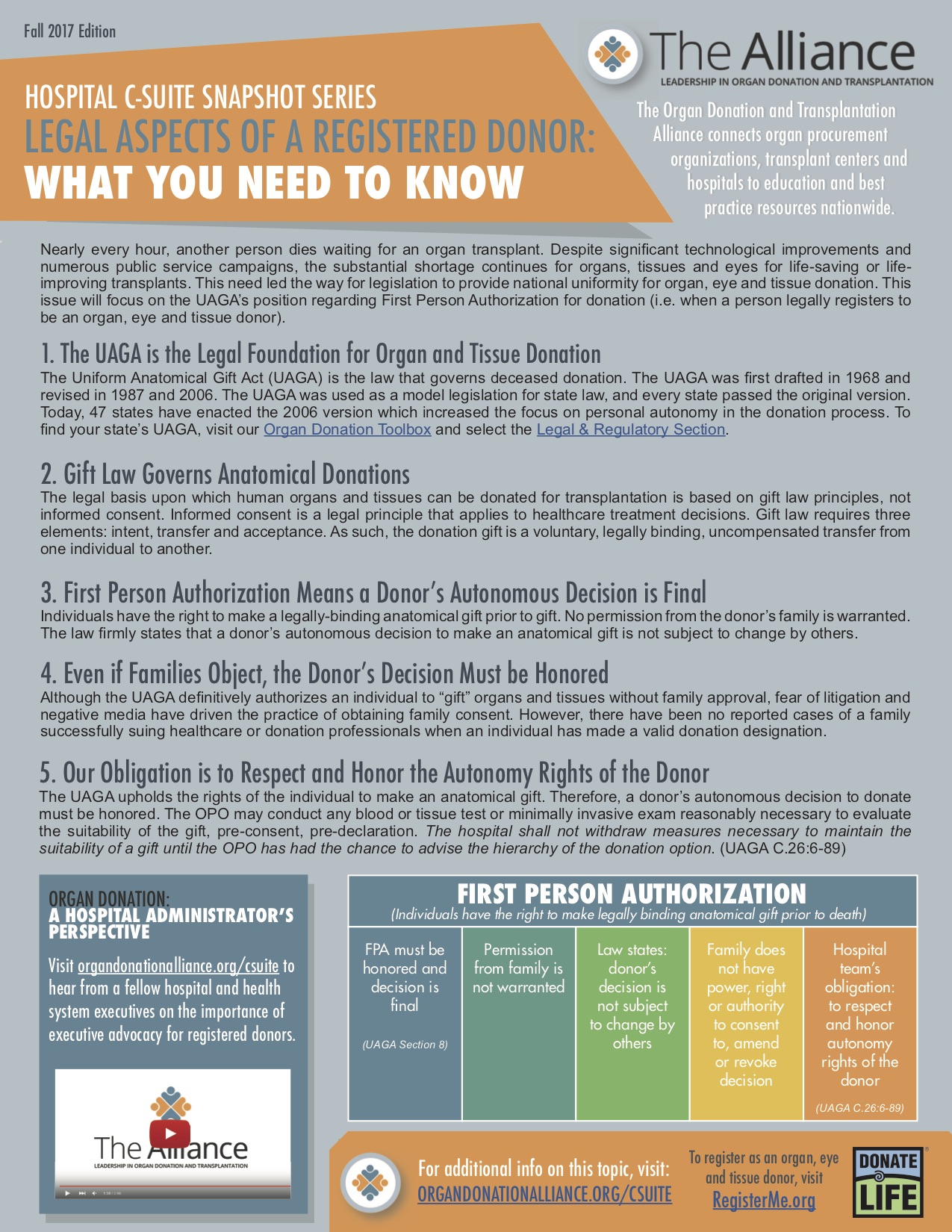Nearly every hour, another person dies waiting for an organ transplant. Despite significant technological improvements and numerous public service campaigns, the substantial shortage continues for organs, tissues and eyes for life-saving or lifeimproving transplants. This need led the way for legislation to provide national uniformity for organ, eye and tissue donation. This issue will focus on the UAGA’s position regarding First Person Authorization for donation (i.e. when a person legally registers to be an organ, eye and tissue donor).
1. The UAGA is the Legal Foundation for Organ and Tissue Donation
The Uniform Anatomical Gift Act (UAGA) is the law that governs deceased donation. The UAGA was first drafted in 1968 and revised in 1987 and 2006. The UAGA was used as a model legislation for state law, and every state passed the original version. Today, 47 states have enacted the 2006 version which increased the focus on personal autonomy in the donation process. To find your state’s UAGA, visit our Organ Donation Toolbox and select the Legal & Regulatory Section.
2. Gift Law Governs Anatomical Donations
The legal basis upon which human organs and tissues can be donated for transplantation is based on gift law principles, not informed consent. Informed consent is a legal principle that applies to healthcare treatment decisions. Gift law requires three elements: intent, transfer and acceptance. As such, the donation gift is a voluntary, legally binding, uncompensated transfer from one individual to another.
3. First Person Authorization Means a Donor’s Autonomous Decision is Final
Individuals have the right to make a legally-binding anatomical gift prior to gift. No permission from the donor’s family is warranted. The law firmly states that a donor’s autonomous decision to make an anatomical gift is not subject to change by others.
4. Even if Families Object, the Donor’s Decision Must be Honored
Although the UAGA definitively authorizes an individual to “gift” organs and tissues without family approval, fear of litigation and negative media have driven the practice of obtaining family consent. However, there have been no reported cases of a family successfully suing healthcare or donation professionals when an individual has made a valid donation designation.
5. Our Obligation is to Respect and Honor the Autonomy Rights of the Donor
The UAGA upholds the rights of the individual to make an anatomical gift. Therefore, a donor’s autonomous decision to donate must be honored. The OPO may conduct any blood or tissue test or minimally invasive exam reasonably necessary to evaluate the suitability of the gift, pre-consent, pre-declaration. The hospital shall not withdraw measures necessary to maintain the suitability of a gift until the OPO has had the chance to advise the hierarchy of the donation option. (UAGA C.26:6-89)
(add image)






